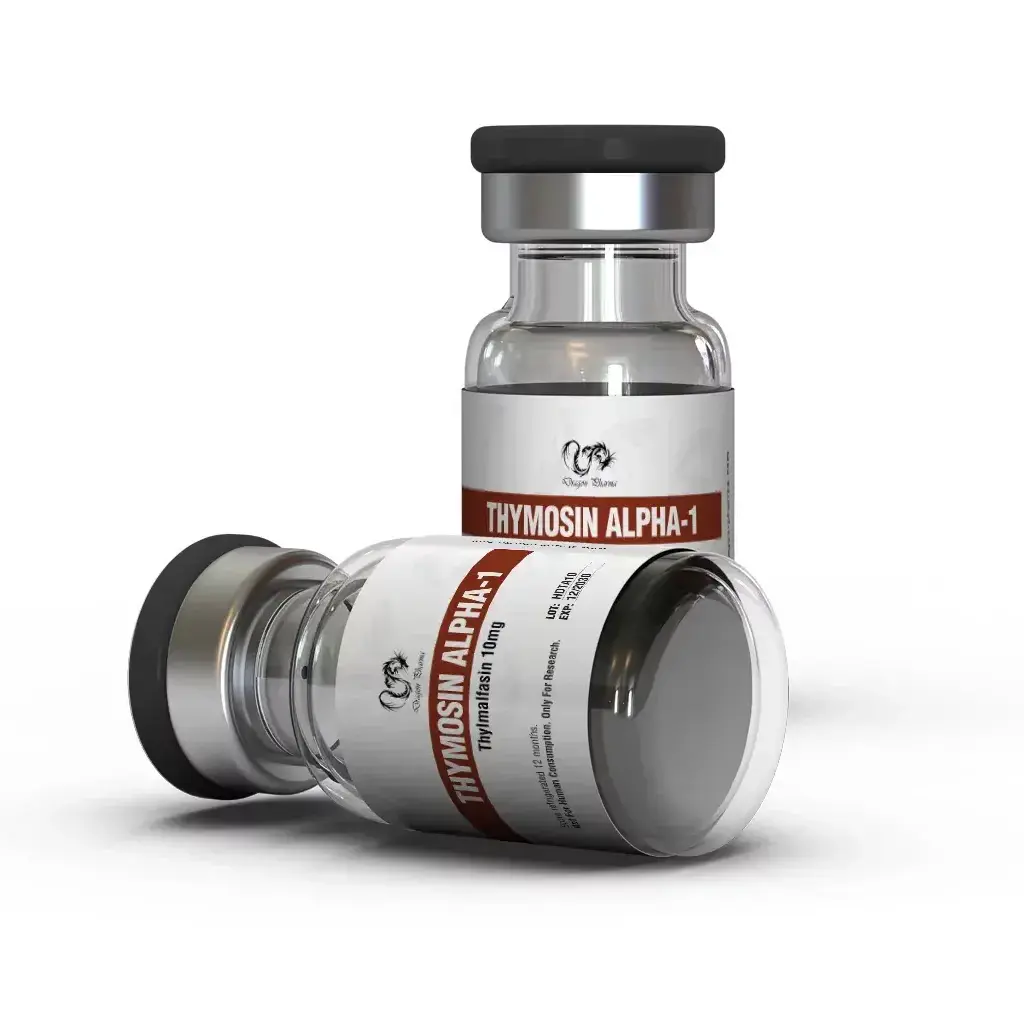


CLASSIFICATION: RESEARCH PEPTIDE / IMMUNE MODULATOR
ACTIVE SUBSTANCE: THYMOSIN ALPHA-1
FORM: 2 ML VIAL x 10 MG (LYOPHILIZED POWDER)
ACTIVE HALF-LIFE: APPROXIMATELY 2 HOURS
DOSAGE: 1-2 MG, 2-3 TIMES PER WEEK
ACNE: NO
WATER RETENTION: NO
HIGH BLOOD PRESSURE (HBP): NO
HEPATOTOXICITY: NO
AROMATIZATION: NO
MANUFACTURER: DRAGON PHARMA
Dragon Pharma Thymosin Alpha-1 10 mg represents a pinnacle of research into immune system optimization. This naturally occurring 28-amino acid peptide, originally isolated from the thymus gland, serves as a master regulator of the body's defense mechanisms. Unlike compounds that simply stimulate immune activity, Thymosin Alpha-1 acts as an immunomodulator, meaning it can both enhance inadequate immune responses and suppress overactive ones, bringing the system into a state of perfect balance. For athletes and bodybuilders pushing their bodies to the absolute limit—a state known to temporarily suppress immune function—this peptide offers a fascinating subject for research into maintaining health, accelerating recovery from illness, and improving overall resilience. Presented in a pure 10 mg lyophilized powder vial, Dragon Pharma delivers a research-grade product of exceptional purity and precision for laboratory investigation.
The effects of Thymosin Alpha-1 are comprehensive and central to immune competence. Its primary action is the stimulation and differentiation of T-cells, which are the cornerstone of the adaptive immune system. It enhances the function of T-helper cells, cytotoxic T-cells, and Natural Killer (NK) cells, making the immune response more efficient at identifying and eliminating pathogens. Furthermore, it modulates the production of key signaling molecules called cytokines, promoting a balanced inflammatory response rather than the damaging "cytokine storm" seen in some severe infections.
Research, including a comprehensive review in the World Journal of Gastroenterology, has highlighted its therapeutic potential in chronic viral infections and as an adjuvant to vaccines. For the research-focused athlete, the observed benefits in models include a significant reduction in the frequency and duration of illness, faster recovery from training-induced immunosuppression, and potential protective effects on liver function. It essentially works to "train" the immune system to be more robust and responsive, a critical factor for uninterrupted training progress.
Establishing a precise Thymosin Alpha-1 dosage is critical for obtaining valid research data. As a potent research chemical, it is not intended for human consumption, and all studies must be designed with strict safety and ethical protocols. For the 10 mg vial from Dragon Pharma, researchers reconstitute the lyophilized powder with bacteriostatic water to achieve a precise concentration for subcutaneous administration.
Common research protocols are based on clinical studies and typically involve a dosage of 1.0 mg to 1.6 mg, administered two to three times per week. Some intensive protocols may initiate research with a "loading phase" of daily administration for 1-2 weeks before transitioning to the maintenance schedule of 2-3 times per week. The short half-life of approximately 2 hours is offset by its long-lasting effects on immune cell function, making frequent daily dosing unnecessary. Research should always commence at the lower end of the dosage spectrum to carefully monitor the subject's response.
Designing an effective Thymosin Alpha-1 research cycle requires an understanding of its role as a modulator rather than an acute stimulant. Immune system optimization is a process, and cycles are therefore typically longer than those for other peptides. A standard research cycle can range from 4 to 8 weeks, with some protocols extending to 12 weeks for chronic conditions. Given its excellent safety profile in research models, longer cycles are feasible, often followed by a break of 4-6 weeks.
Thymosin Alpha-1 is highly synergistic when studied alongside other recovery and performance compounds. For comprehensive tissue repair and injury recovery, it is often stacked with BPC-157. To accelerate muscle recovery and reduce systemic inflammation, researchers frequently combine it with TB-500. During intense cutting phases where immune function can be compromised, adding a metabolic optimizer like Aicar 50 mg can provide valuable data. For those studying the effects of deep, restorative sleep on immunity and recovery, DSIP 10 mg is an excellent research companion. Finally, to support overall cellular health and combat oxidative stress during training, GHK-cu 50 mg can be incorporated into the observational protocol.
Thymosin Alpha-1 is renowned in research for its exceptional safety profile and high tolerance. Because it works by modulating the body's own systems rather than introducing a foreign mechanism, side effects are rare and typically very mild when observed. The most commonly reported issue in some research models is minor discomfort, redness, or itching at the injection site, which is common with many subcutaneous peptides.
In very rare instances, if a subject has an underlying and undiagnosed autoimmune condition, there is a theoretical risk of exacerbating the condition due to the immunomodulatory action. However, in standard research models, this is not a common observation. There are no known cases of hepatotoxicity, renal toxicity, or hormonal imbalances associated with Thymosin Alpha-1. It does not cause water retention, high blood pressure, or any androgenic side effects. Its excellent tolerability is a key reason for its widespread research interest. This compound is strictly for controlled laboratory research and is not meant for human consumption.
Proper handling of Dragon Pharma Thymosin Alpha-1 is essential to preserve its bioactivity and ensure research integrity. The lyophilized powder must be stored in a refrigerated environment between 2°C and 8°C (36°F and 46°F) at all times, both before and after reconstitution. To prepare the peptide for research, it must be reconstituted gently with bacteriostatic water. The water should be injected slowly down the side of the vial, and the vial should be rolled gently between the palms until the solution is clear. Aggressive shaking should be avoided to prevent damaging the peptide's structure.
Given the multi-dose nature of the protocol, maintaining sterility is paramount. Once reconstituted, the solution remains stable for approximately 3-4 weeks when refrigerated. Researchers should mark the vial with the date of reconstitution and adhere to a strict aseptic technique every time a dose is drawn. Using alcohol swabs to clean the rubber stopper before each insertion is a standard best practice to prevent microbial contamination.
The primary research application for Thymosin Alpha-1 in athletic models revolves around preventing the "open window" of immunosuppression that follows prolonged, intense exercise. During this period, athletes are more susceptible to upper respiratory tract infections. Research focuses on how Ta1 can shorten or close this window, ensuring consistent training. Beyond general immunity, its hepatoprotective properties make it a subject of interest for studies involving compounds that can stress the liver, and its role in enhancing vaccine response is a key area of immunological research.
Its synergy with other peptides is profound. When stacked with BPC-157 and TB-500, it creates a powerful "recovery trifecta," addressing immune function, local tissue repair, and systemic healing simultaneously. For researchers studying cognitive performance under stress, its potential anti-anxiety effects and synergy with nootropics like Selank are also of significant interest.
Research into Thymosin Alpha-1 indicates that its primary strength lies in prophylaxis—preventing illness by optimizing the immune system's readiness. However, studies have also shown that it can help modulate the immune response during an active infection, potentially leading to a reduction in symptom severity and a shorter overall duration of the illness. By enhancing T-cell function and balancing cytokine production, it helps the body mount a more efficient and controlled attack against pathogens, which can translate to faster recovery times in research models.
Although both are peptides derived from the thymus gland, Thymosin Alpha-1 and TB-500 have distinct and complementary functions. Thymosin Alpha-1 is primarily an immunomodulator, focusing on enhancing the adaptive immune system (T-cells, NK cells). TB-500, on the other hand, is primarily focused on promoting cellular migration, proliferation, and tissue repair, making it excellent for healing injuries. They are often stacked in research to provide comprehensive support for both systemic immunity and localized physical recovery.
While Thymosin Alpha-1 has an excellent safety profile in research models, continuous long-term use is not typically recommended in standard protocols. The immune system is a complex and self-regulating organ, and the goal of research is to modulate and support it, not to permanently override its natural rhythms. Common research cycles last 4-8 weeks, followed by a break of equal length. This cyclical approach allows researchers to assess the lasting effects of the peptide and prevents potential, though unlikely, down-regulation of natural immune function.
This is a key area of research interest. Due to its immunomodulatory and hepatoprotective properties, Thymosin Alpha-1 is often studied in protocols involving compounds that can suppress immune function or cause hepatic stress. For instance, during cycles with oral compounds, researchers may use Ta1 to support overall liver health and immune resilience. It is also studied alongside powerful compounds like Trenbolone, which can be taxing on the body, to see if it can help maintain wellness and mitigate the "feel bad" aspects associated with such harsh supplements.
This is because Thymosin Alpha-1's effects are mediated through the activation and maturation of immune cells, particularly T-lymphocytes. While the peptide itself clears the bloodstream quickly, the biological changes it initiates—such as stimulating T-cell production and enhancing their function—are long-lasting. The cells themselves have a lifespan of days to weeks. Therefore, administering Ta1 two to three times per week is sufficient to maintain a sustained, elevated level of immune competence without the need for daily injections, making it a very practical compound for longer-term research cycles.
Please log in to write THYMOSIN ALPHA-1 10 MG review.
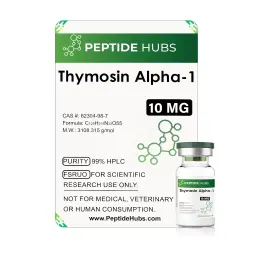
CLASSIFICATION: IMMUNE-MODULATING PEPTIDE
ACTIVE SUBSTANCE: THYMOSIN ALPHA-1
FORM: LYOPHILIZED POWDER (2 ML VIAL x 10 MG)
ACTIVE HALF-LIFE: APPROX. 2 HOURS
DOSAGE: 2–6 MG PER WEEK (RESEARCH USE ONLY)
ACNE: NO
WATER RETENTION: NO
HIGH BLOOD PRESSURE (HBP): NO
HEPATOTOXICITY: NONE
AROMATIZATION: NO
MANUFACTURER: PEPTIDE HUBS
LABORATORY TESTED: VIEW LAB RESULTS
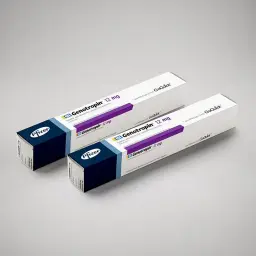
CLASSIFICATION: RECOMBINANT HUMAN GROWTH HORMONE (rHGH)
ACTIVE SUBSTANCE: SOMATROPIN
FORM: 1 PRE-FILLED PEN x 36 IU (12 MG)
ACTIVE HALF-LIFE: ~3.5 HOURS (SUBQ)
DOSAGE: 1–4 IU/DAY FOR ANTI-AGING; 4–8 IU/DAY FOR FAT LOSS OR PERFORMANCE
WATER RETENTION: POSSIBLE (DOSE DEPENDENT)
HEPATOTOXICITY: NONE
AROMATIZATION: NO
MANUFACTURER: PFIZER
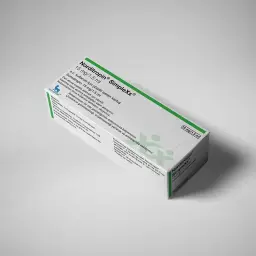
CLASSIFICATION: RECOMBINANT HUMAN GROWTH HORMONE (r-hGH)
ACTIVE SUBSTANCE: SOMATROPIN (R-HGH)
FORM: 1 CARTRIDGE x 15 MG
ACTIVE HALF-LIFE: ~2–3 HOURS
DOSAGE: MEN 4-10 IU/DAY
ACNE: POSSIBLE
WATER RETENTION: POSSIBLE
HIGH BLOOD PRESSURE (HBP): MAY INCREASE VIA FLUID RETENTION
HEPATOTOXICITY: NONE TYPICAL
AROMATIZATION: NONE
MANUFACTURER: NOVO NORDISK
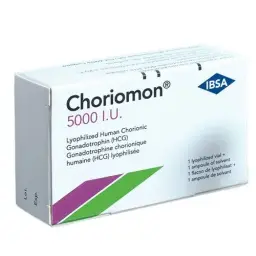
CLASSIFICATION: GONADOTROPIN (LH RECEPTOR AGONIST)
ACTIVE SUBSTANCE: HUMAN CHORIONIC GONADOTROPIN
FORM: 1 LYOPHILIZED VIAL x 5000 IU + PROVIDED SOLVENT
ACTIVE HALF-LIFE: ~24–36 HOURS
DOSAGE: MEN 500-1000 IU
ACNE: POSSIBLE
WATER RETENTION: POSSIBLE
HIGH BLOOD PRESSURE (HBP): MONITOR IF AT CV RISK
HEPATOTOXICITY: NONE TYPICAL
AROMATIZATION: INDIRECT
MANUFACTURER: IBSA
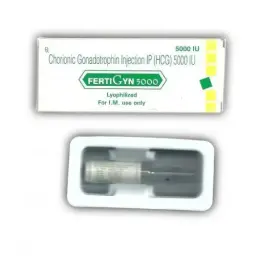
CLASSIFICATION: PEPTIDE HORMONE / HCG
ACTIVE SUBSTANCE: HUMAN CHORIONIC GONADOTROPIN
FORM: 1 ML AMP x 5000 IU
ACTIVE HALF-LIFE: ~3–6 DAYS
DOSAGE: 250–1000 IU 2–3x/WEEK (ON-CYCLE or PCT)
ACNE: POSSIBLE
WATER RETENTION: MODERATE
HIGH BLOOD PRESSURE (HBP): UNLIKELY
HEPATOTOXICITY: NONE
AROMATIZATION: INDIRECTLY ELEVATES ESTROGEN
MANUFACTURER: SUN PHARMA